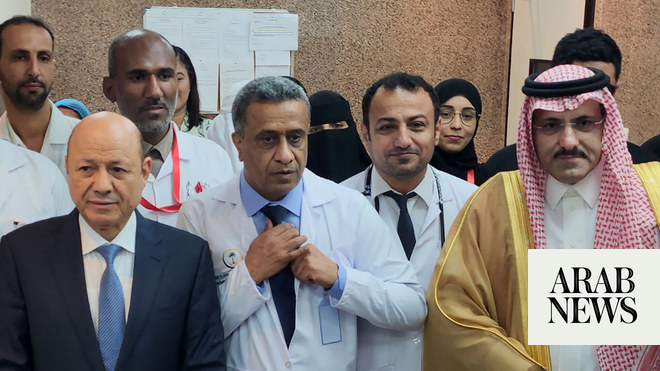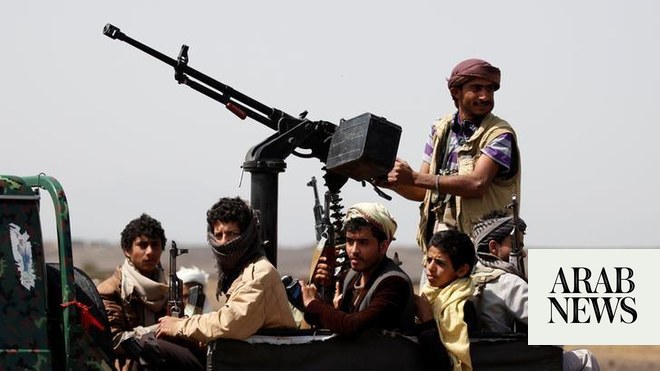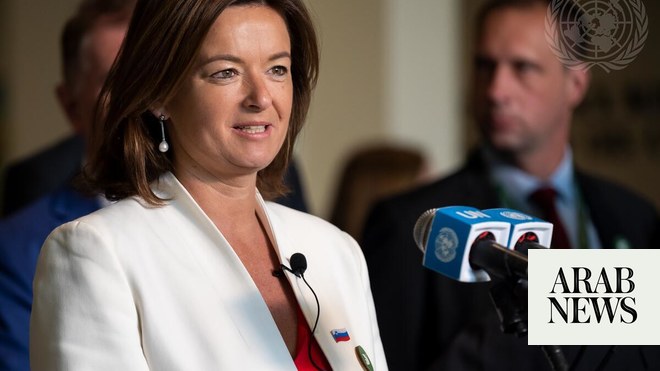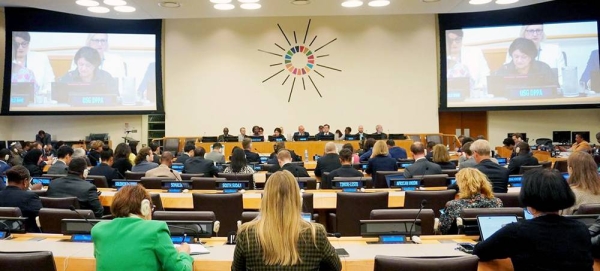
Hans Grundberg, the UN envoy to Yemen, said that a truce agreed a year ago has been beneficial but remains fragile, with sporadic outbreaks of violence
Yemen’s envoy urged the international community to put more pressure on the Houthis ‘to engage with peace efforts to end the protracted humanitarian suffering’
NEW YORK CITY: The UN Security Council on Wednesday heard calls for increased efforts to achieve a more durable and sustainable truce in Yemen that can help bring an end to the conflict and alleviate the humanitarian suffering in the country.
Speaking during the latest meeting to discuss the situation in Yemen, the UN’s special envoy to the country, Hans Grundberg, told the council that an existing truce agreed a year ago has proven beneficial to the overall stability of the country and has helped its economy achieve some measure of recovery.
However, it remains fragile, he added, and the sporadic violence that continues to erupt in various provinces adds to instability.
These breaches aside, the UN-brokered truce has been responsible for the longest pause of hostilities since the war began in 2014 between forces loyal to the Yemeni government, and Iran-backed Houthi militias that control large swaths of the country, including the capital Sanaa.
Under the truce, both sides agreed to halt military activity and allow commercial flights to and from Sanaa airport to resume. They also agreed to allow ships carrying fuel to dock at Hodeidah Port, and to reopen the major roads connecting the nation’s provinces.
“The truce provided a conducive environment and starting point,” said Grundberg.
“The fragility of the military situation, the dire state of the economy and the daily challenges facing Yemenis are reminders why a more comprehensive agreement between the parties is so vital.”
The envoy praised Saudi and Omani authorities for their backing of initiatives designed to bring stability to Yemen and end the conflict.
“I welcome the efforts made by Saudi Arabia and Oman to support the UN mediation role,” he said.
He added that he is also encouraged by recent discussions with officials in Yemen and across the region. Despite the many challenges “there is a room for cautious optimism,” he said.
Grundberg highlighted the release of 878 detainees as part of an agreement facilitated by his office and the International Committee of the Red Cross, with the support of the Swiss government.
While he called for the release of all those being held as a result of the conflict, as thousands more are still behind bars, he said more detainees had been released by the Saudi government, which supports Yemen’s internationally recognized government.
In his address to the Security Council, Yemen’s representative to the UN enumerated the violations the people of his country have suffered at the hands of the Houthis. He said they target civilian infrastructure, recruit children to fight in the conflict, and violate the human rights of Yemenis in the areas they control.
“The Yemeni government call on the international community, and this honorable council, to live up to their commitments and to put more pressure on the Houthi militias and Iran, which supports them, to choose peace and to engage positively with the peace efforts to end the protracted humanitarian suffering,” the Yemeni envoy said.
Edem Wosornu, director of operations and advocacy at the UN’s Office for Coordination of Humanitarian Affairs, told council members the humanitarian situation in Yemen remains dire, with millions of people still struggling to obtain sufficient food and shelter for themselves and their families.
She said two factors have limited the ability of her agency to help many of the Yemenis in need of assistance. Firstly, many people in the country are unable to access even basic humanitarian assistance, especially in areas under Houthi control. Secondly, she said, there remains a significant shortfall in donations to fund the aid effort in Yemen, with 80 percent of funding objectives unmet.
Yasmeen Al-Eryani, of the Sanaa Center for Strategic studies, said the economic and humanitarian effects of the conflict on the Yemeni people have been devastating.
“The war hijacked the Yemenis from the chance to dream of a better tomorrow,” she said.
However, they are still capable of recovering and restoring their country, Al-Eryani added.
“I can assure you that Yemeni women, youth, and all segment of society, are fully capable of rebuilding the country and shaping its future,” she said.









